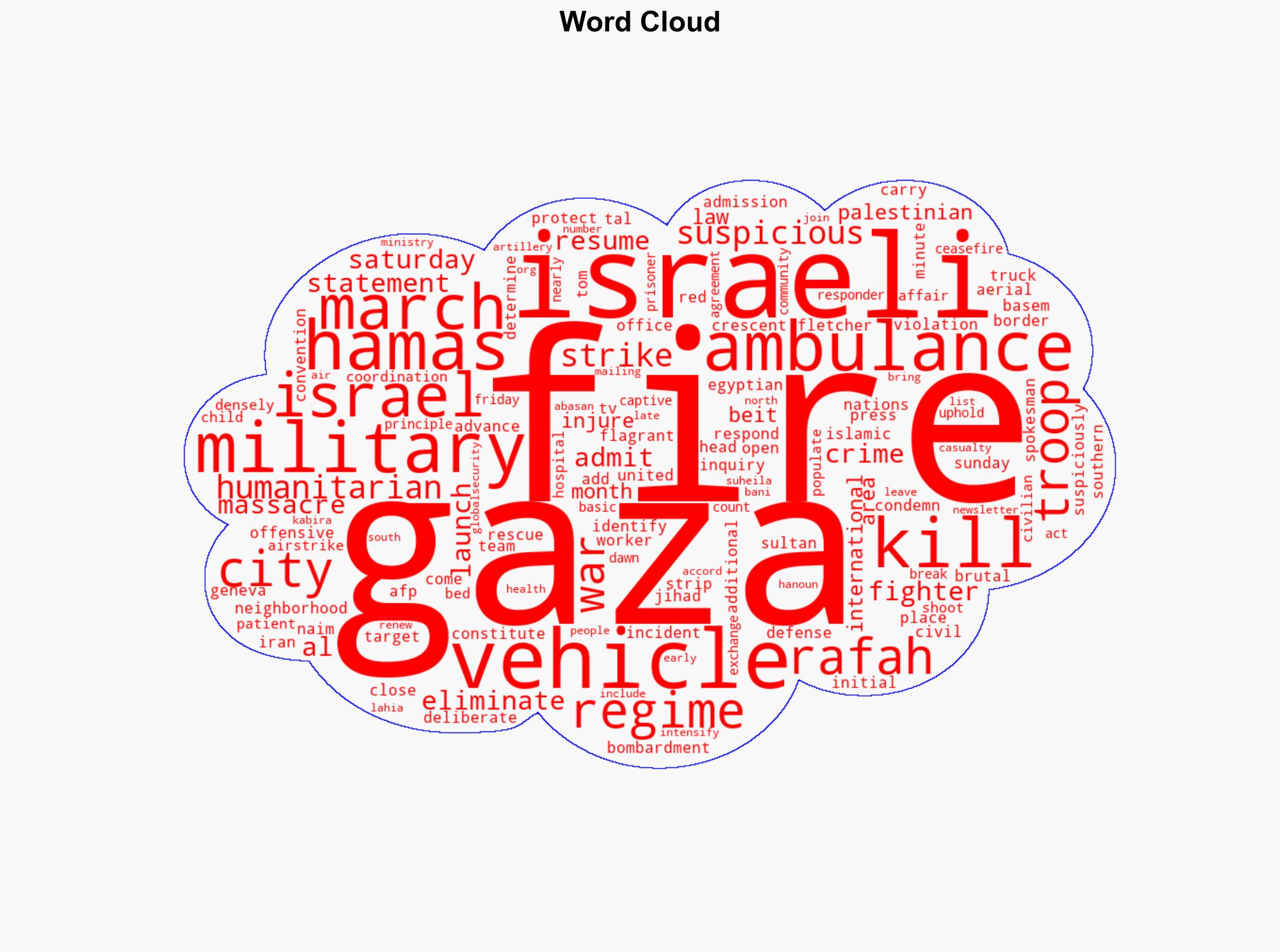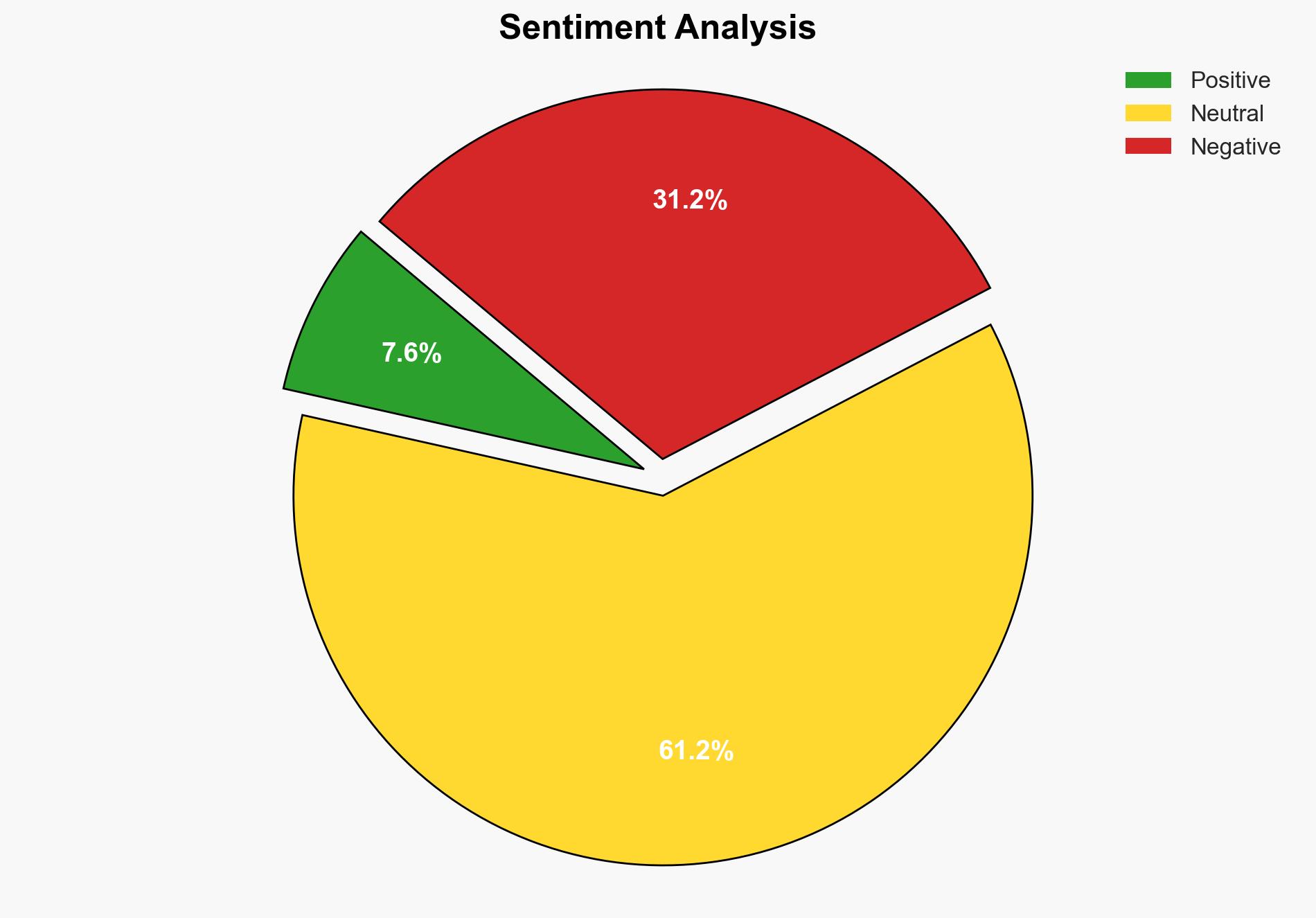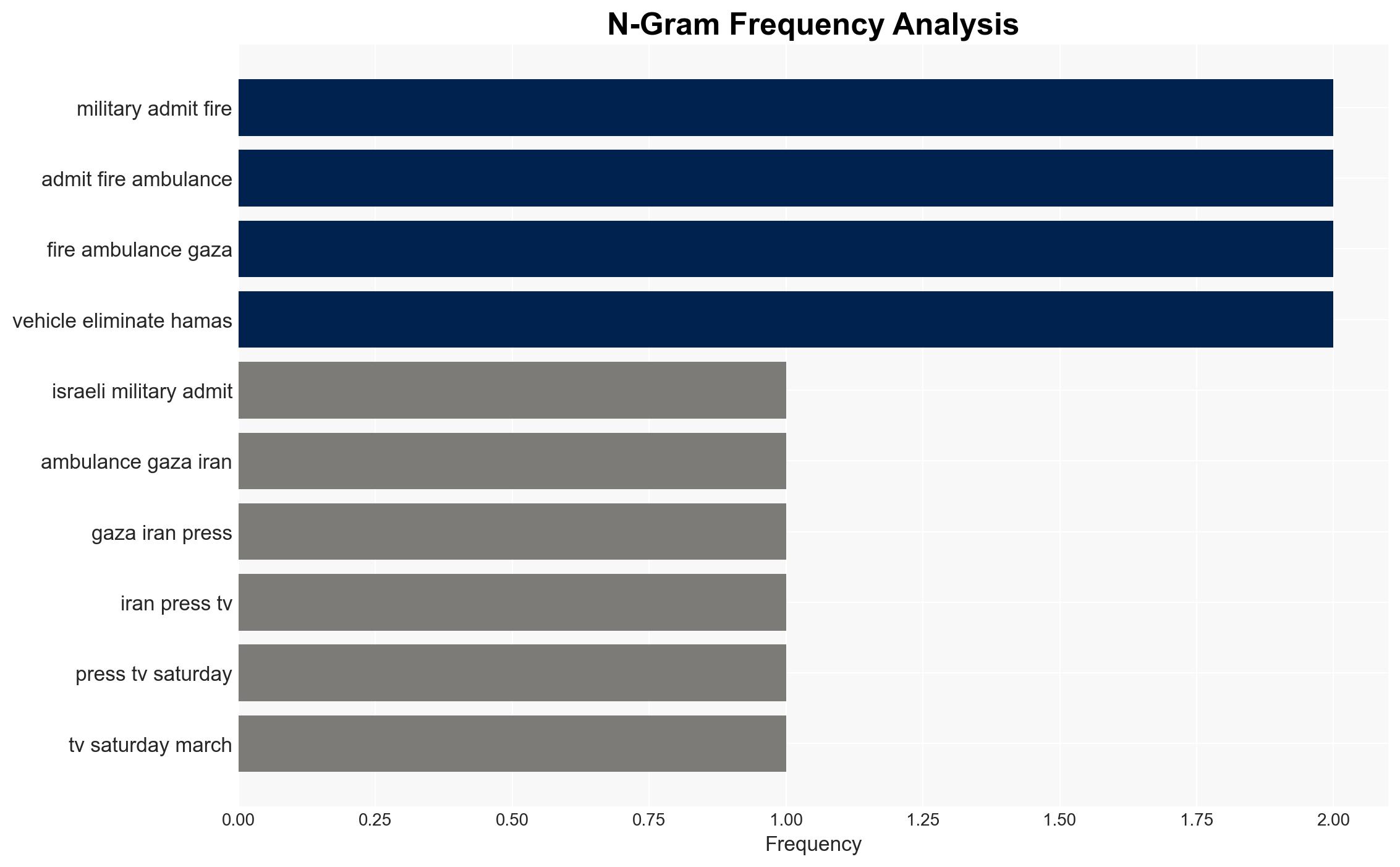Israeli military admits to firing on ambulances in Gaza – Globalsecurity.org
Published on: 2025-03-30
Intelligence Report: Israeli military admits to firing on ambulances in Gaza – Globalsecurity.org
1. BLUF (Bottom Line Up Front)
The Israeli military has admitted to firing on ambulances in Gaza, identifying them as suspicious vehicles during a military operation in Rafah. This incident has drawn condemnation from various groups, including Hamas, which labeled it a war crime. The event underscores the ongoing volatility in the region and highlights the challenges in distinguishing between combatants and non-combatants in conflict zones. Immediate diplomatic engagement and enhanced operational protocols are recommended to prevent further escalation and ensure compliance with international humanitarian laws.
2. Detailed Analysis
The following structured analytic techniques have been applied for this analysis:
General Analysis
The admission by the Israeli military of firing on ambulances in Gaza represents a significant development in the ongoing conflict. The incident occurred in Rafah, near the Egyptian border, during an offensive aimed at eliminating Hamas and Islamic Jihad fighters. The military’s statement suggests that the ambulances were mistaken for hostile vehicles due to their suspicious movement. This event has intensified tensions, with accusations of war crimes and violations of the Geneva Convention being levied against Israel. The situation is exacerbated by the densely populated nature of the Gaza Strip, where distinguishing between civilian and military targets is inherently challenging.
3. Implications and Strategic Risks
The firing on ambulances has significant implications for regional stability and international relations. The incident risks escalating hostilities between Israel and Palestinian factions, potentially leading to broader regional instability. It also poses a risk to Israel’s international standing, as allegations of war crimes could lead to increased scrutiny and diplomatic pressure. Economically, prolonged conflict could disrupt regional trade and investment, affecting both local and international stakeholders. The event highlights the need for improved identification protocols and adherence to international humanitarian laws to mitigate such risks.
4. Recommendations and Outlook
Recommendations:
- Enhance identification and verification protocols for distinguishing between civilian and military vehicles in conflict zones.
- Engage in diplomatic dialogue with Palestinian authorities to de-escalate tensions and prevent further incidents.
- Implement training programs for military personnel on international humanitarian law and conflict de-escalation techniques.
Outlook:
In the best-case scenario, diplomatic efforts lead to a de-escalation of tensions and a renewed ceasefire agreement. The worst-case scenario involves an escalation of hostilities, resulting in increased casualties and regional instability. The most likely outcome is a continuation of sporadic violence, with intermittent diplomatic engagements aimed at conflict resolution.
5. Key Individuals and Entities
The report mentions significant individuals and organizations, including Basem Naim and Tom Fletcher. These individuals have been vocal in their condemnation of the incident and call for adherence to international humanitarian standards.





